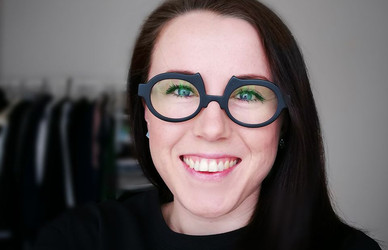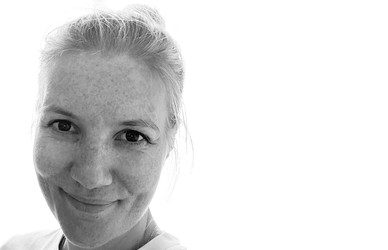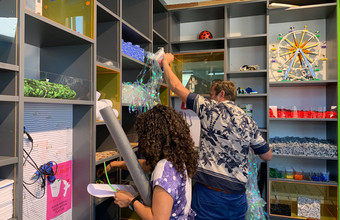How do we enable the universality of design?
At Design School Kolding we are excited to announce Dr Yanki Lee as our 1st Visiting Professor in Universal Design. Yanki Lee will be joining our research team in the Lab for Social Design, one of three laboratories at Design School Kolding dedicated to bridging design and fields of global concern.
Design School Kolding collaborates with the BEVICA Foundation in Denmark to re-introduce the concept of Universal Design (UD) into both research and teaching with the aim to balance theoretical and practical knowledge, academic and real-life practice. One of our initiatives is the appointment of a guest professor to support this focus, and we are proud to be able to welcome Yanki Lee who is an expert on innovative ways to enable the universality of design.
Professor in Social Design Eva Brandt states:
- This announcement is very important for us. Universal Design is a relatively new research field in Denmark, and this first visiting professorship is part of Design School Kolding’s new strategy to focus on and integrate the development of Universal Design in our research and teaching activities. I am delighted about the grant from the BEVICA Foundation, which has made all of this possible. We warmly welcome Yanki Lee, and I along with the rest of the team look very much forward to working with her and drawing on her extensive international networks of inclusive design, social design, design for social innovation and transdisciplinary practice to rethink the applications of Universal Design for our futures.
Bio and merits
As a global citizen, Yanki Lee lives and works between Hong Kong, London and Växjö. She began her career as a design researcher on discussions about human-centred design practices, i.e., to what extent can designers co-design with people and what defines people: users, clients, citizens? while constantly referring to the notions of “design for/with/by people. More recently, Yanki Lee has extended this discussion to non-humans when she started to work as a part-time Senior Lecturer/Associate Professor at the Design +Change programme at Linnæus University and a founding member of the Critical Ecologies group of Shared Campus since 2017.
Yanki Lee has an MA in Architecture from Royal College of Art in London and obtained her PhD in Design Participations from Hong Kong Polytechnic University. From 2000 - 2012 she was a research fellow with Helen Hamlyn Centre, Royal College of Arts and head of their educational programme. In the numerous multidisciplinary participatory action research projects Yanki Lee has collaborated for instance with specialists from social studies, sociology and environmental studies.
As a design activist with an architectural design background and as founder of the social design collective EXHIBIT at Golden Lane Estate CIC (UK) and the social design agency and education charity Enable Foundation (HK), Yanki Lee co-designs objects and exhibitions as empathic tools with collaborators that unlock wicked social problems such as death (Fig. 1) and dementia (Fig. 2) using immersive design methodologies.
The external international assessment committee responsible for Yanki Lee’s appointment concluded that, “Overall, Yanki Lee’s publication and practice-led research contributions make a significant contribution to knowledge, as does her clear ambition to extend understandings of what Universal Design/Social Design is and can deliver. The committee unanimously finds Yanki Lee qualified for the position as guest professor at Design School Kolding.”
What is Universal Design?
Universal Design is the design of buildings, environments, products, services, policies etc. to make them accessible to all people, regardless of age, disability or other factors. As research and development in Universal Design is trans-diciplinary the BEVICA Foundation has created the Universal Design Hub which is an extensive and well established network in disability support and advocacy.




